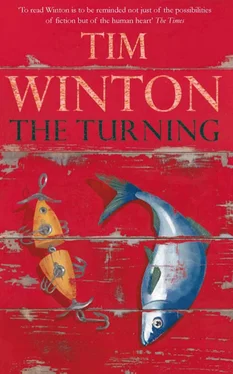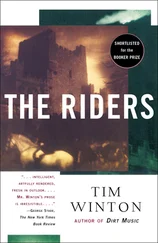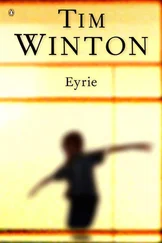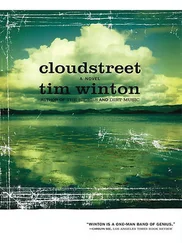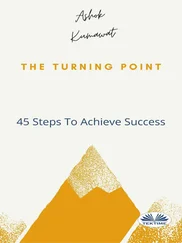And not called?
These people, they never call. Silence, that’s their idea of an apology. It’s how they’re brought up.
But she looked troubled for a few moments. Then her face cleared.
Oh well, she murmured. There’s the waiting list. I can still fill a dance card in this business.
Sure, I said without any enthusiasm.
Anyway, we’ll show her.
How’s that?
We’ll clean that flat within an inch of its life.
Oh yeah, I muttered. That’ll put her back in her box. Go, Mum.
We pulled up in the leafy street beneath a block of Art Deco flats. You could smell the river. Even after three years at the university, whose lawns all but ran to the river’s grassy banks, that constant, brothy presence stank of old money, of posh schools and yacht clubs. Sometimes it reeked of Law itself, of port and cigars, chesterfields, musty paper and the men who owned this city because of it. That smell kept me alert. It made me wary and determined.
Drive on up, Mum, I said. Use her car space.
I wouldn’t give her the satisfaction.
I did not roll my eyes. I got out and hoisted the vacuum cleaner off the back seat. She grabbed a bucket full of rags and squeeze bottles along with the mop.
Don’t you use her gear?
Not today.
Don’t tell me. The principle, right?
She winked and I felt sick for her.
I followed her up the long garden steps. Veins stood out in her calves. Beneath her loose shorts her thighs were white and dimpled. She seemed so old. I balanced the Electrolux hose on my shoulder and stared at the tennis shoes that she scrubbed and bleached every week to keep them looking new. As if anyone but her gave a damn.
Up on the porch, she fished the key from her blouse. All the keys hung from a piece of string around her neck. The sound of them jangling onto her dressing table at night signalled the end of her day.
The apartment had a closed-up smell intensified by the pong of housebound cats. While Mum went through to the kitchen I stared a moment at the Klee reproductions, the dreadful cat photos in gold frames, and the Kokoschka poster which appeared to be new. I heard an envelope torn open and I came in as she held up the mauve paper, one hand on her heart.
What does it say?
Nothing, she said too quickly. She stuffed the note into her pocket and patted her hair. The envelope lay on the bench. There was money in it.
I opened the fridge, a huge American thing with two doors and an icemaker.
No snooping, she said. Not even today.
There were two kinds of white wine, tomato juice and jars of condiments. On one shelf was a stack of foil boxes, some kind of packaged food without labels. I closed the fridge and looked at the wine rack, a shoulder-high stack of bottles that, after her second week, my mother was requested to leave undisturbed, unrolled, unwiped and undusted.
Don’t be a stickybeak, she murmured, pulling on gloves.
Today I just couldn’t help myself. It wasn’t only resentment. I was curious. What kind of person would do this? After years of faultless service there was no discussion, just the accusation and the brusque termination in three scrawled lines.
Cat tray, she said.
I went into the airless laundry where the litter tray lay beneath the steel trough. The stink was awful. I got down with a garbage bag and tried to breathe through my mouth but the dust from the grit rose onto my lips and tongue and I started to gag. I grunted a bit, swung the hair out of my eyes and got it done, twisting the bag shut. I was supposed to disinfect the tray and I’d never dared cut corners before, but I just tipped some litter in and left it at that.
From the bathroom came the sound of my mother’s off-key singing. I paused at the doorway a moment where a stinging fog of ammonia spilled out into the hall. She stopped warbling as if conscious of my presence. She was bent over the tub, Ajax in hand, veins livid in her legs. As I walked on, the sound of her brush panted against the enamel.
I binned the cat bag and began damp-dusting. With every surface so crowded with objets , it was slow work. Every trinket, souvenir, ornament and figurine had to be wiped, lifted, dusted beneath and replaced precisely. Standing orders. Mum would inspect it like a sergeant-major at barracks inspection. We both agreed that nobody who cleaned their own place would bother keeping such junk. A week of doing for herself and this woman’d ditch the lot out with the cat litter.
It was a lonely apartment. We’d had a grim few years, Mum and I, but you wouldn’t walk into our place and feel the same melancholy you picked up here. Another person might have found it tranquil, but to me it felt as stale as it smelled. I dusted the Andrew Wyeth reproduction and the steel and leather chairs. I brushed and wiped and waxed the long shelves of books and tried to imagine having strangers in our place looking in our fridge, touching our stuff, ripping hanks of our hair from the plughole. You’d have to imagine they were some kind of sleepwalker, that they were blind, incurious, too stupid to notice intimate things about your life. You’d have to not think about them, to will these intruders away. Or just be confident. Yes, I thought. That’s what it takes to be blasé about strangers in your house — a kind of annihilating self-assurance.
The bookshelves in the livingroom were stocked with novels and popular psychology. There were big celebrity hardbacks as well as the usual stuff by Germaine Greer, Erica Jong, Betty Friedan. But I found both volumes of the Kinsey Report and boxed sets of erotica I took some minutes to thumb through, wondering how Mum had missed them.
In the study I flicked the duster across slabs of specialist material, academic stuff, lever-arch files and archive boxes. I found biographies of Paul Robeson, Leadbelly, Dorothy Day, Martin Luther King, each of them bristling with tabs of paper and pencilled notes. On the desk beside the typewriter was a pile of what I instantly recognized as student papers. The title of the topmost was Throwing Off the Shackles: consciousness-raising and the delivery of change. I turned the cover page and read a few paragraphs. It was all the safe, right-thinking stuff of the time but clumsily written. The comments in red biro were good-natured and forbearing.
I smoothed the paper back into place and dusted the pin-up board of snapshots above the desk. The photos were of people in heavy coats and hats with earflaps, of fir trees, snow, people with big, pink smiling faces and spectacles. Americans. The lantern-jawed woman who appeared in so many — it was her. She looked decent, happy, loved by friends and family. Even as I clawed through her desk drawers, finding nothing more remarkable than a tiny twist of hash in a bit of tinfoil, I knew I wouldn’t find anything that would satisfy me. Now I just wanted to get the job over with.
In the bedroom I worked in a frenzy. Every sill and architrave, each lamp and mirror got a grinding wipe. I Windexed the glass, waxed the girly dressing table. When it was done I went out for the vacuum, cranked it up and ploughed my way through the whole place. At one point, when the old girl glanced up from the kitchen floor, I averted my eyes.
The thought kept returning to me. Why would someone not report the theft of a pair of five-hundred-dollar earrings? Even to claim the insurance you’d have to report it. Perhaps it was my own uneasiness at having overstepped the boundaries, at having gone through somebody’s stuff, which made me consider the chance that this woman might know about me, be aware that I’d helped here before. Could she have suspected me rather than Mum? Worse still, did she know who I was, that I was an undergraduate at her own campus? And then could it be possible that her failure to report a theft to the cops was an act of kindness towards my mother, an act of mercy toward me?
Читать дальше
